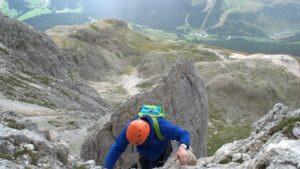Who says learning can’t be fun? Educational adventures, where knowledge meets thrill, are reshaping the way we perceive education. It’s a world where textbooks take a backseat, and experiential learning takes the wheel.
Imagine diving deep into the ocean to learn about marine life or trekking through dense jungles to understand biodiversity. Educational adventures make it possible. They’re not just about adding excitement to learning; they’re about creating a lasting impact.
Educational Adventures
Definition and Importance

Educational adventures redefine the process of acquisition. It’s a progressive learning approach where students gain knowledge and experience simultaneously through real-life adventures. Invigorating activities, such as hiking, wildlife exploration, and marine dives, become valuable classrooms. Learning extends beyond traditional boundaries, connecting students directly to the subject matter.
Relevance of educational adventures lies in their distinctive approach, which engages students differently than traditional teaching methods. They offer a real-world context to theoretical knowledge, enhancing comprehension of concepts and boosting retention rates. Adventures stimulate curiosity, fostering a learning investing active participation, not just a rote process. Furthermore, these experiences shape versatility, resilience, and environmental consciousness among students.
History and Evolution

Educational adventures, not new to the academic landscape, have evolved remarkably over time. In the early 20th century, nature walks and museum visits were common educational outings. They introduced students to natural sciences and arts in a direct, engaging manner. Fast forward to the 21st century, the scope has widened notably with globalization and the advent of travel-friendly technology.
Modern educational adventures now encapsulate a broad range of activities, from archeological digs and coding camps to space simulations and marine biology expeditions. The Practical learning received the spotlight, consistently supported by research emphasizing the benefits of experiential learning. Today’s educational adventures aren’t just field trips, they’re in-depth experiential learning experiences that continue to revolutionize the conventional educational system.
Types of Educational Adventures
Here, we’ll elaborate on several types of educational adventures, which aim to blend education and exploration in a variety of unique ways.
Outdoor Learning Programs

Outdoor Learning Programs act as a bridge, linking classroom teachings with real-world applications. Students engage with nature through activities such as identifying plant species, trekking, camping, bird-watching, and star gazing. For instance, a botany lesson brought to life in a local botanic garden engages students more deeply than a simple textbook could ever achieve. Such experiences empower students to learn autonomously and develop a far-reaching understanding of the natural world.
Virtual Reality Experiences
Thanks to leaps in technology, Virtual Reality Experiences offer another mode of educational adventures. Through VR headsets, students can explore far-off places, historical events, or alien planets right from the safety of their classroom or home. Imagine journeying to Ancient Rome, exploring the terrain of Mars, or venturing into a microscopic world, each offering its unique learning opportunities. It’s about making learning scenarios as immersive and interactive as conceivable, fostering a close affinity with the subject matter.
Study Abroad Programs

Study Abroad Programs perhaps represent a more traditional understanding of ‘adventure,’ but they certainly offer educational value too. Students travel to a foreign country, immerse themselves in a different culture, and learn a new language. They attend a school abroad to learn subjects that may not be available in their home country. For instance, a student from Denver might study Renaissance art in Florence or behavioral ecology in the Amazon rainforest. This international exposure broadens their horizons, teaching them adaptability, resilience, and intercultural understanding on top of the standard curriculum.
Enjoyable Learning Journey
Educational adventures aren’t just a trend; they’re transforming the way students learn and engage with the world around them. They’re proving that learning can be a thrilling journey, not just a destination. From forest schools to study abroad programs, these experiences amplify comprehension, social skills, and environmental awareness. They’re a testament to the power of experiential learning and its potential to enhance traditional education models. However, they require careful selection and evaluation to align with students’ interests and abilities, and ensure safety and educational value. With the right approach, educational adventures can pave the way for a more engaging, effective, and enjoyable learning experience.

